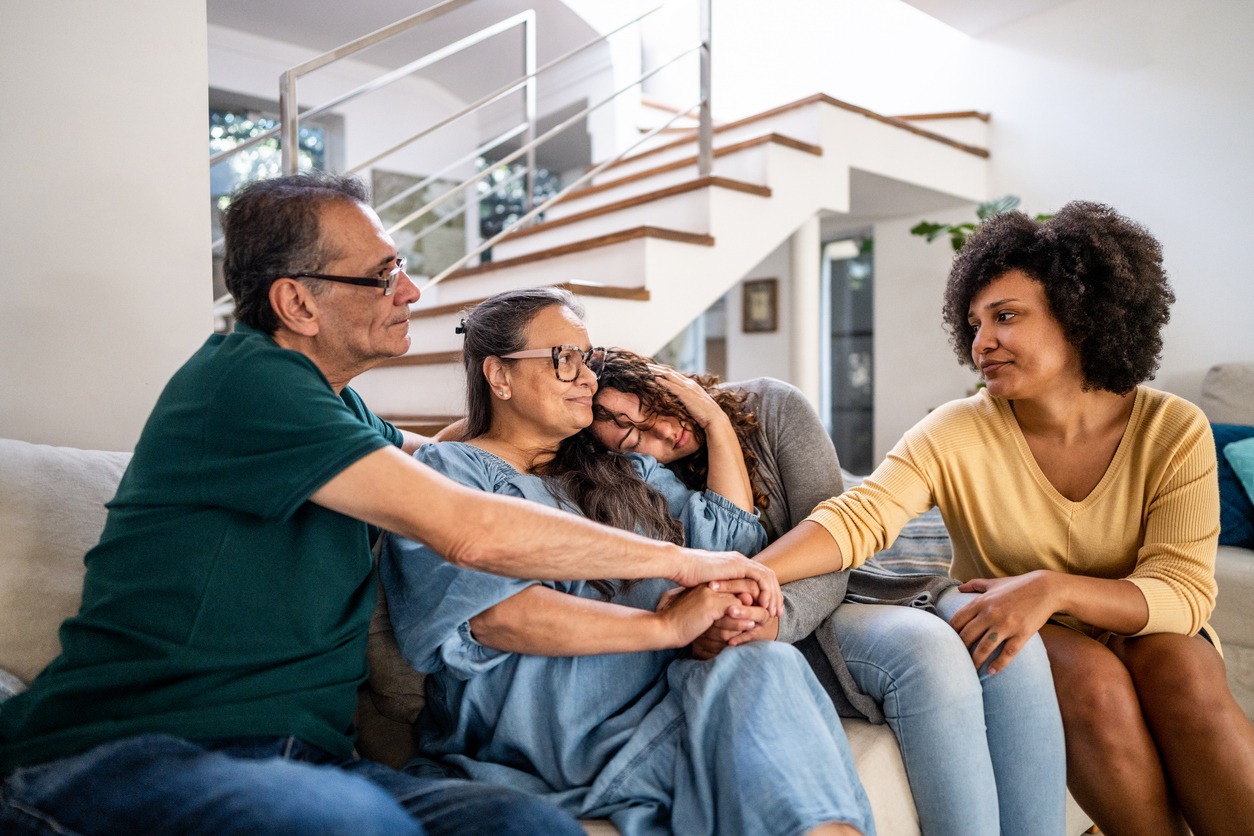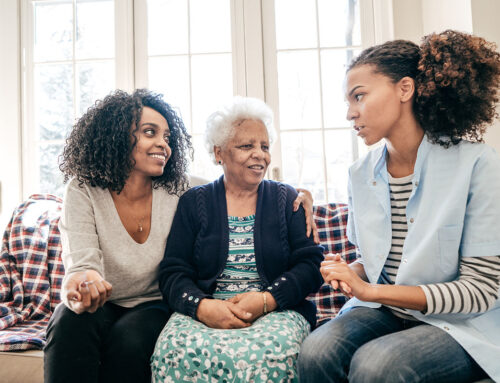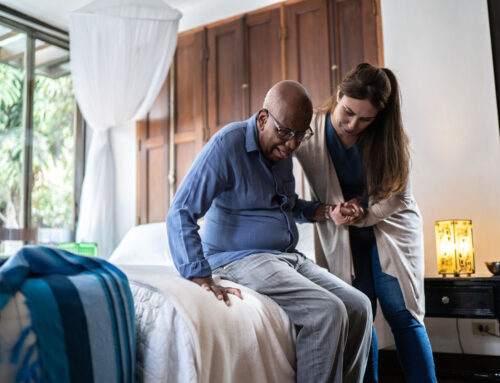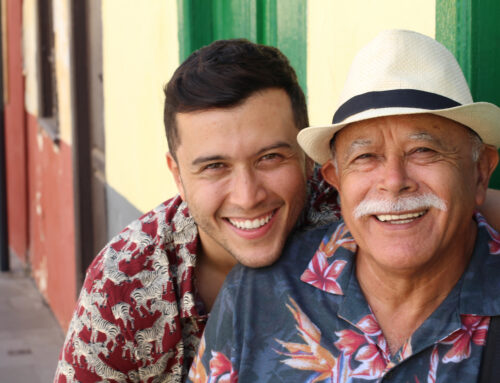Coping with a loved one being in hospice care during the holidays can be difficult. We’re used to it being a joyful time of year, and memories of past seasons may accentuate how this year is different. The season brings expectations of joy and celebration, while you may be experiencing grief, anxiety, and uncertainty.
Here are some ways to help navigate this difficult time:
- Acknowledge Your Feelings
- Accept mixed emotions: It’s okay to feel both sadness and gratitude. You don’t have to force yourself to feel happy or cheerful just because it’s the holiday season.
- Allow yourself to grieve: Anticipatory grief is common when a loved one is in hospice care. Don’t suppress feelings of sadness or loss—acknowledging these emotions can help you process them more effectively.
- Adjust Holiday Expectations
- Redefine the holiday experience: The holidays don’t have to be elaborate. You can simplify traditions to fit the current situation. Maybe this year, the focus is on quiet moments and meaningful conversations.
- Create new traditions: You can find comfort in small, special acts like sharing memories, listening to your loved one’s favorite music, or watching a holiday movie together.
- Don’t strive for perfection: Do not try to maintain normal holiday routines if they feel overwhelming.
- Spend Time with Your Loved One
- Simply be there: Even if your loved one can no longer communicate fully, your presence can bring them comfort. Simply being with them, holding their hand, or talking softly can create meaningful moments.
- Talk about memories: Reminiscing about shared holiday memories or other meaningful times can bring comfort to both you and your loved one.
- Say what’s in your heart: Don’t wait to share feelings of love, gratitude, or forgiveness. Sometimes, saying things you’ve been meaning to say can bring peace to both parties.
- Lean on family and friends: Don’t be afraid to ask for help, whether it’s practical assistance with holiday preparations or emotional support. Others may be looking for ways to help but don’t know how – letting them in can alleviate some of the burden.
- Talk to professionals: Roze Room teams include social workers, counselors, and chaplains who can offer guidance and emotional support.
- Join a support group: Connecting with others who are experiencing something similar can provide a sense of community and understanding.
- Take Care of Yourself
- Practice self-compassion: Give yourself permission to take breaks, cry, or laugh, and to do what you need to take care of your mental and emotional well-being.
- Rest and recharge: Caring for a loved one can be physically and emotionally draining, so ensure you’re getting enough rest and eating properly, even when your focus is elsewhere.
- Find Meaning in the Moment
- Reflect on the meaning of the holidays: For many, the holidays are a time of love, family, and togetherness. Focus on the essence of the season—being present, giving and receiving love, and finding peace.
- Honor your loved one’s wishes: If possible, include them in holiday planning and ask what would make the time meaningful for them. Respecting their desires may help you feel like you are sharing a part of the season in a way that matters most to them.
- Plan for After the Holidays
- Prepare for the grief that may follow: If the holidays mark a final season with your loved one, it can help to have a support plan in place for after their passing. Grief may feel more intense after the holidays, so consider having someone you trust available to talk to during that time.
- Remember that it’s okay to be sad: The holidays might forever carry a mixture of emotions for you, and that’s a normal response to loss. You don’t have to “move on” or forget the person you love.
Coping with a loved one being in hospice care during the holidays may be difficult, but hospice improves the quality of life for a seriously ill loved one. It enables them to more fully engage in life’s activities and joys. A referral to Roze Room at the holidays may actually help the family have more quality time together during the holidays by controlling symptoms and providing practical and emotional support that eases anxiety and stress. To learn more click here or call (877) 783-0072





